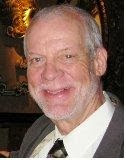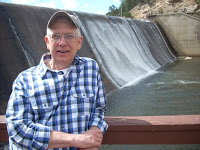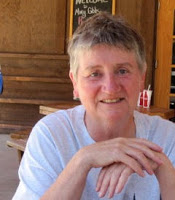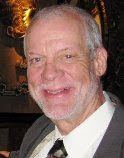I must have entered into the relationship through the eye of the storm. Our connection was pacific, even inspiring at the beginning, but somehow the eye passed and I found myself caught up in a hurricane of problems.
The calm beauty of our first nights together featured a sexual exploration like I had never before experienced, the two of us touching, responding, initiating, enjoying a reciprocal openness and delight. That second morning when I had to leave early—well 3:00 a.m.—to feed my visiting family, he again said, in a childlike voice, “Don’t go.”
“I have to go, but the kids leave today. I’ll meet you after work; we’ll have the whole night together. I’ll fix you breakfast.”
“I want to fix you breakfast,” he insisted.
That third night turned out like I’d hoped, and we basked in one another’s presence, held onto each other, actually slept in his bed. And then I was introduced to his skill as a cook, that breakfast the first of many meals we shared in following months.
But within a few weeks I knew he was HIV positive, was in deep legal trouble facing a third degree sexual assault charge, had twice tried to kill himself, had serious financial problems, was just newly out to his parents, was getting medical attention through Denver Health, had recently been in the hospital, had decided he wanted to stay well, and wanted me to move in with him right away. I also found out he was college educated, creative, funny, sweet, and made my heart pound extra fast whenever he showed up—always late. I was hopelessly in love with this guy in a way I had never experienced before. He said he was in love with me as well.
The storm brought many trips to the hospital and clinic for tests, imaging appointments, surgical procedures, examinations of new symptoms, introductions of new medications, and more. Fortunately the intensity of these problems was matched by the intensity of our enthusiasm for one another. Our days provided new revelations of our pasts, experiments of intimacy, delight in giving ourselves to each other through conversation, touch, laughter, dance, and food. Our storm was not a fight but rather an accommodation to delights that we hoped would have a long future. But as the weeks went on the specter of failure kept trying to get through the door that had been left ajar in spite of our love. We watched the building intensity of the storm, the complications of treatments, the appearance of symptom after symptom, the confusion of diagnoses. We were both wearing down, not in our love or commitment, but in our imagination of a future. And there were other challenges: work, exhaustion, and fear. Fear was my largest challenge. I had lost too many people from my life in the prior six years: parents, my marriage, a good friend, and the too-recent death of another lover. My grief over that loss had not sufficiently subsided. Still I was not thinking of running away. We were tight Rafael and I. But I wished I weren’t going through all this again, especially when I had never had such feelings of love with another human being.
My lover’s parents lived in Mexico. They had little English; I had little Spanish. I had wanted to meet them before another hospitalization. That didn’t happen. I met them as my lover’s condition complicated, as his death neared. The storm ended then, at least the main part of it. Yet a storm lingers in me. Fifteen years later it still roars on occasion.
The ancient Etruscans believed that once grief visits it never goes away. I have many joys, and in my old age can list grief after grief. Now I work hard to welcome grief as a friend, even when my losses do not feel particularly friendly. I keep looking for the eyes in new storms I encounter and appreciate the ways their calm equips me to live with acceptance and supports my overall joy in life.
© 9 July 2018
About the Author
Phillip Hoyle lives in Denver and spends his time writing, painting, and socializing. In general he keeps busy with groups of writers and artists. Following thirty-two years in church work and fifteen in a therapeutic massage practice, he now focuses on creating beauty. He volunteers at The Center leading the SAGE program “Telling Your Story.”
He also blogs at artandmorebyphilhoyle.blogspot.com









